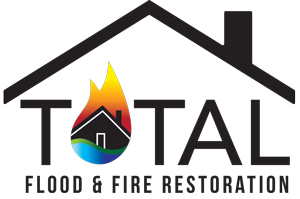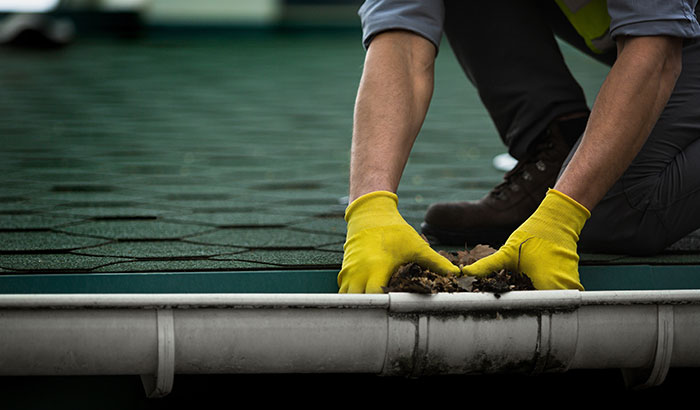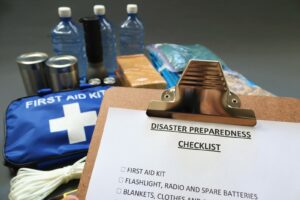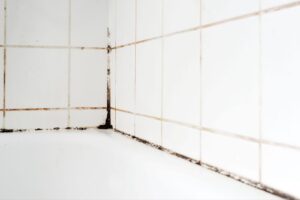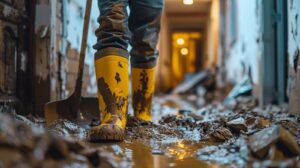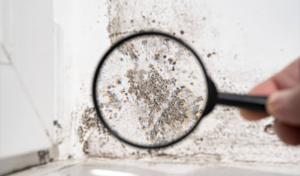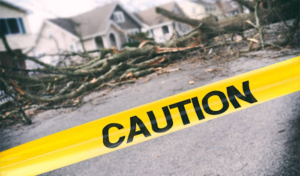Water damage is one of the most common and expensive types of damage that can occur in a home. It can cause structural damage, mold growth, and damage to personal belongings.
However, with a little bit of effort and attention to detail, you can prevent water damage from occurring in your home.
In this article, we will provide 30 tips that can help you prevent water damage in your home and explain why implementing these tips can protect your home in the future.
- Keep gutters clean and free of debris. One of the primary causes of water damage in a home is clogged gutters. When gutters are clogged with leaves, branches, and other debris, water can overflow and damage the home’s roof, siding, and foundation. Keeping gutters clean and free of debris can prevent water damage from occurring.
- Install gutter guards. Gutter guards are designed to prevent debris from entering gutters and causing clogs. Installing gutter guards can reduce the amount of debris entering gutters, reducing the risk of water damage.
- Check for leaks in the roof. A leaky roof can cause water to enter the home and cause damage to the ceiling, walls, and personal belongings.
- Repair leaks in the roof immediately. If you notice a leak in the roof, it is important to repair it immediately. Delaying repairs can cause the damage to worsen and lead to more expensive repairs in the future.
- Inspect the roof after a storm. After a storm, it is important to inspect the roof for damage. Strong winds and heavy rain can cause damage to the roof, which can lead to leaks and water damage.
- Maintain trees near the home. Trees can provide shade and enhance the beauty of a home, but they can also cause water damage if they are not maintained. For example, trees with overhanging branches can damage the roof and gutters and cause water to enter the home.
- Ensure proper drainage around the home. Proper drainage around the home is essential for preventing water damage. Water should be directed away from the house to prevent it from entering the basement or crawlspace.
- Install a sump pump. A sump pump is designed to pump water out of the basement or crawlspace and prevent flooding. Installing a sump pump can prevent water damage in the basement or crawlspace. Testing the sump pump regularly is also important to ensure it works correctly.
- Install a backwater valve. A backwater valve prevents sewage from backing up into the home. Installing a backwater valve can prevent sewage backups, which can lead to sewage and water damage.
- Inspect plumbing regularly. Leaky pipes, faucets, and toilets can cause water damage in the home. Inspecting plumbing regularly can prevent leaks and water damage.
- Repair plumbing leaks immediately. If you notice a plumbing leak, it is important to repair it immediately. Delaying repairs can cause the damage to worsen and lead to more expensive repairs in the future.
- Know the location of the main water shut-off valve. Knowing the location of the main water shut-off valve can help you quickly shut off the water in case of a plumbing emergency.
- Install water alarms. Water alarms are designed to detect water leaks and alert you to potential water damage. Installing water alarms can help you detect leaks early and prevent water damage.
- Insulate pipes in cold areas. Pipes in unheated or poorly insulated areas can freeze and burst, causing water damage. Insulating pipes in cold areas can prevent them from freezing and bursting.
- Keep the thermostat at a consistent temperature. Keeping the thermostat at a consistent temperature can prevent pipes from freezing and bursting. It is recommended to keep the temperature above 55 degrees Fahrenheit.
- Disconnect hoses from outside faucets in the winter. Water left in hoses connected to outside faucets can freeze and cause the faucet to burst. Disconnecting hoses from outside faucets in the winter can prevent this from occurring.
- Install a water pressure regulator.
High water pressure can cause pipes to burst and lead to water damage. Installing a water pressure regulator can prevent this from occurring. - Know the age of your water heater. Water heaters have a limited lifespan and can fail, causing water damage. Knowing the age of your water heater can help you plan for a replacement and prevent water damage.
- Replace old water heaters. Old water heaters are more likely to fail and cause water damage. It is recommended to replace water heaters that are more than ten years old.
- Install a drain pan under the water heater. Installing a drain pan under the water heater can contain water in case of a leak and prevent water damage.
- Install water sensors. Water sensors are designed to detect water leaks and alert you to potential water damage. Installing water sensors can help you detect leaks early.
- Check appliances for leaks. Appliances such as dishwashers, washing machines, and refrigerators can leak and cause water damage. Checking appliances for leaks regularly can prevent water damage from occurring.
- Replace old appliances. Old appliances are more likely to leak and cause water damage. It is recommended to replace appliances that are more than ten years old.
- Install an automatic shut-off valve. An automatic shut-off valve is designed to shut off the water supply in case of a plumbing emergency. Installing an automatic shut-off valve can prevent water damage from occurring.
- Install a vapor barrier in the crawlspace. A vapor barrier in the crawlspace can prevent moisture from entering the home, causing water damage and mold growth.
- Check for leaks in the basement. Leaks in the basement can cause water damage and lead to mold growth. Checking for leaks in the basement regularly can prevent water damage from occurring.
- Install a dehumidifier in the basement. A dehumidifier in the basement can reduce humidity levels and prevent moisture from entering the home.
- Hire a professional for water damage restoration. Implementing these tips can help you prevent water damage in your home and protect your home in the future. Preventing water damage in your home is a critical step in protecting your home and avoiding costly repairs. By taking these preventative measures, you can reduce the risk of water damage and protect your home from potential damage in the future.
If you’ve found yourself in an unfortunate situation where your home has water damage, here are some important steps you can take that should make the cleanup process a breeze:
- Ensure your safety: The first priority is ensuring you and your family are safe. If the water damage is extensive, turning off any electricity or gas in the affected area is important to prevent the risk of electrocution or gas leaks. Wear protective clothing such as gloves, boots, and a mask when entering the water-damaged area.
- Document the damage: Take photos or videos of the damage for insurance purposes. Make a detailed list of damaged items, including their value and date of purchase, as this information will be helpful when filing an insurance claim.
- Remove standing water: The first step in the cleanup process is to remove any standing water as quickly as possible to prevent further damage. Use buckets, a wet/dry vacuum, or a pump to remove standing water.
- Dry out the area: Once the standing water is removed, it’s important to dry out the affected area as quickly as possible to prevent mold growth. Use fans, dehumidifiers, and open windows to circulate air and dry out the area. It may take several days to fully dry out the area, depending on the extent of the damage.
- Assess the damage: After the area is dry, assess the extent of the damage. Check for any structural damage, such as warped or buckled floors, and identify the cause of the water damage. This will help to determine the appropriate course of action for repairs.
- Repair the damage: Once the damage has been assessed, it’s important to repair any structural damage and address the cause of the water damage to prevent it from happening again. This may involve replacing damaged drywall, flooring, or other building materials. If a leak or other plumbing issue causes water damage, it’s essential to have a plumber or other professional address it to prevent it from happening again.
- Clean and disinfect: After the area is dry and repaired, clean and disinfect any affected surfaces to prevent mold growth and promote a healthy living environment. Use a solution of one part bleach to ten parts water to disinfect surfaces and kill any remaining mold or bacteria. Be sure to wear gloves and other protective clothing when cleaning and disinfecting the area.
- Call a professional: If the damage is severe or you’re not comfortable dealing with it on your own, it is best to call a professional restoration company for the following reasons:
- Expertise: Professional restoration companies have the necessary expertise to assess and mitigate water damage. They have trained professionals who can identify the root cause of the damage and determine the appropriate course of action for repairs.
- Equipment: Professional restoration companies have specialized equipment, such as dehumidifiers, air movers, and moisture meters, that can help to quickly and effectively dry out the affected area and prevent further damage.
- Experience: Professional restoration companies have years of experience in dealing with water damage of all kinds. They know the best practices for cleanup, repairs, and prevention of future damage.
- Health and Safety: Water damage can pose health and safety risks, such as mold growth and structural damage. Professional restoration companies have the necessary protective equipment and know how to handle these risks safely.
- Insurance: Professional restoration companies can help you navigate the insurance claims process and ensure that you receive the compensation you are entitled to for your water damage claim. They can also provide documentation and evidence of the damage to support your claim.
Water damage can be a serious issue leading to further damage and health hazards if not properly addressed. By taking these steps, you can mitigate the damage and get your home back to normal as soon as possible.
This Is Where Total Flood and Fire Restoration Comes In
Throughout the process, our restoration team at Total Flood and Fire Restoration will work with you to keep you informed and ensure that the water damage restoration is done quickly and effectively. Contact us today, and let us help with your water damage restoration before it causes extensive damage.
